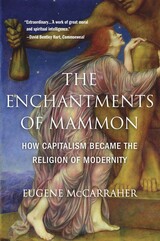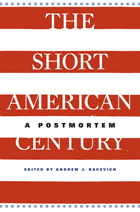
“An extraordinary work of intellectual history as well as a scholarly tour de force, a bracing polemic, and a work of Christian prophecy…McCarraher challenges more than 200 years of post-Enlightenment assumptions about the way we live and work.”
—The Observer
At least since Max Weber, capitalism has been understood as part of the “disenchantment” of the world, stripping material objects and social relations of their mystery and magic. In this magisterial work, Eugene McCarraher challenges this conventional view. Capitalism, he argues, is full of sacrament, whether one is prepared to acknowledge it or not. First flowering in the fields and factories of England and brought to America by Puritans and evangelicals, whose doctrine made ample room for industry and profit, capitalism has become so thoroughly enmeshed in the fabric of our society that our faith in “the market” has become sacrosanct.
Informed by cultural history and theology as well as management theory, The Enchantments of Mammon looks to nineteenth-century Romantics, whose vision of labor combined reason, creativity, and mutual aid, for salvation. In this impassioned challenge to some of our most firmly held assumptions, McCarraher argues that capitalism has hijacked our intrinsic longing for divinity—and urges us to break its hold on our souls.
“A majestic achievement…It is a work of great moral and spiritual intelligence, and one that invites contemplation about things we can’t afford not to care about deeply.”
—Commonweal
“More brilliant, more capacious, and more entertaining, page by page, than his most ardent fans dared hope. The magnitude of his accomplishment—an account of American capitalism as a religion…will stun even skeptical readers.”
—Christian Century

Writing in Life magazine in February 1941, Henry Luce memorably announced the arrival of “The American Century.” The phrase caught on, as did the belief that America’s moment was at hand. Yet as Andrew J. Bacevich makes clear, that century has now ended, the victim of strategic miscalculation, military misadventures, and economic decline. To take stock of the short American Century and place it in historical perspective, Bacevich has assembled a richly provocative range of perspectives.
What did this age of reputed American preeminence signify? What caused its premature demise? What legacy remains in its wake? Distinguished historians Jeffry Frieden, Akira Iriye, David Kennedy, Walter LaFeber, Jackson Lears, Eugene McCarraher, Emily Rosenberg, and Nikhil Pal Singh offer illuminating answers to these questions. Achievement and failure, wisdom and folly, calculation and confusion all make their appearance in essays that touch on topics as varied as internationalism and empire, race and religion, consumerism and globalization.
As the United States grapples with protracted wars, daunting economic uncertainty, and pressing questions about exactly what role it should play in a rapidly changing world, understanding where the nation has been and how it got where it is today is critical. What did the forging of the American Century—with its considerable achievements but also its ample disappointments and missed opportunities—ultimately yield? That is the question this important volume answers.
READERS
Browse our collection.
PUBLISHERS
See BiblioVault's publisher services.
STUDENT SERVICES
Files for college accessibility offices.
UChicago Accessibility Resources
home | accessibility | search | about | contact us
BiblioVault ® 2001 - 2024
The University of Chicago Press









